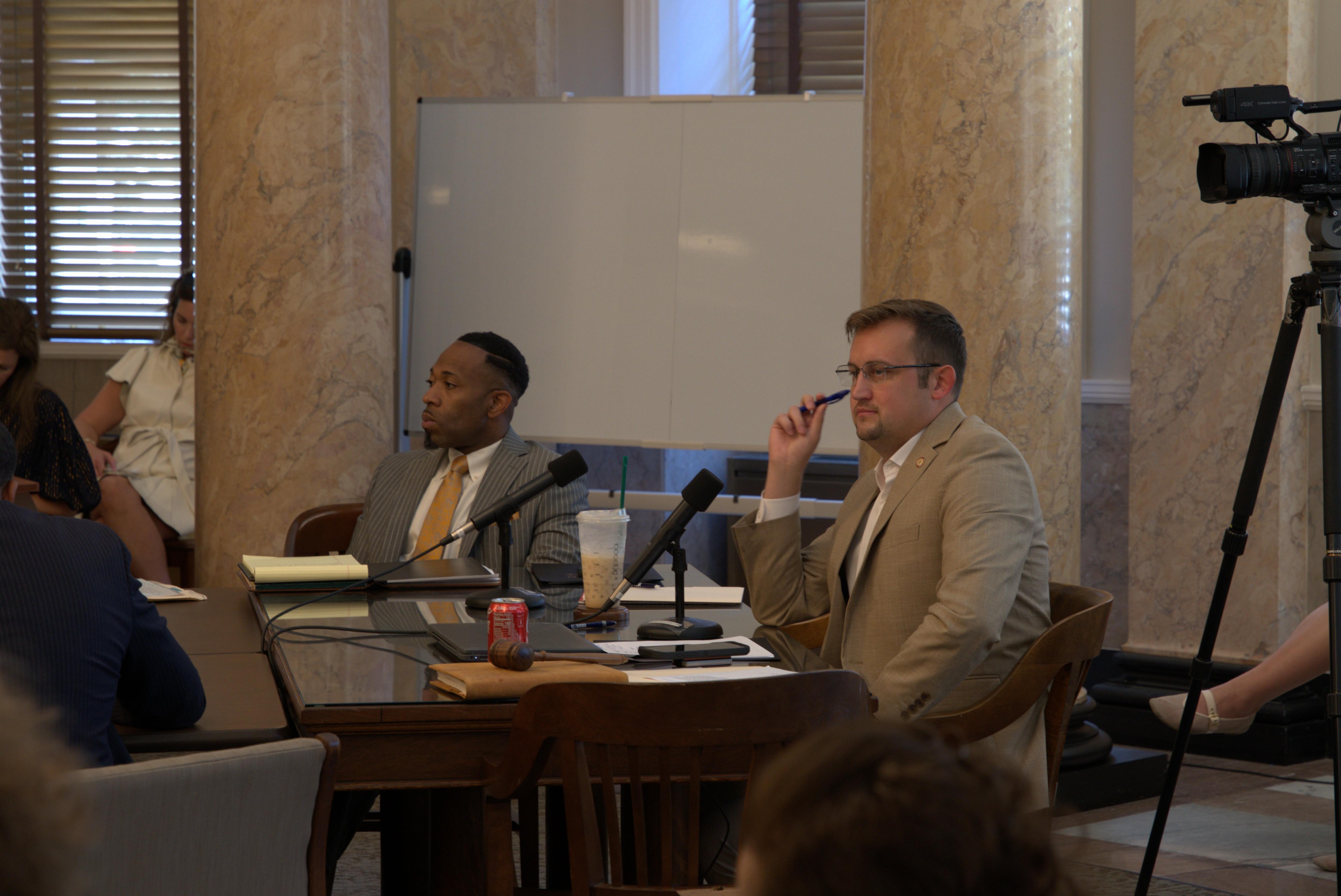During the third meeting of the House Select Committee on Education Freedom on Thursday, Barrett Donahoe, executive director of the Midsouth Association of Independent Schools, told lawmakers nonpublic schools’ willingness to participate in any school choice program hinges on preserving their institutional autonomy.
“The ability to teach a curriculum that aligns precisely with the school's religious and educational mission statement is non-negotiable for us,” Donahoe said.
Donahoe said his association has been opposed to state funded school choice programs for decades, fearing they would come with mandates on testing, admissions or secular curriculum..
Committee members pressed Donahoe on why public schools should continue to shoulder accountability requirements such as state testing while private schools insist on exemption.
“So basically you're saying you would accept the funding, but you wouldn't accept any changes,” Rep. Greg Holloway (D-Hazlehurst) said.
Donahoe pushed back, arguing parents are the ultimate accountability check
“These parents are going to be the proverbial canary in the cave,” Donahoe said. “If something’s going wrong, they’re going to leave that school.”
In an email sent after the hearing, Nancy Loome, president of The Parents’ Campaign, warned that giving private schools public funds with lighter oversight would create a “separate and unequal” educational system and could undo years of progress Mississippi has made in raising student achievement.
“School choice, if adopted, will set Mississippi back decades,” Loome said, pointing to Florida and Arizona as cautionary tales where public-school funding has declined.
Another area of concern is how athletics could shape transfer decisions by parents and admissions decisions by schools under a school choice system.
Chad Harrison, president of the Mississippi High School Activities Association, urged lawmakers to keep the current one-year waiting period for transfer students to play sports.
“We're going to have some movement based on academic needs, but I promise you, the vast majority of our movement is going to be for athletics and activities,” Harrison said. “I believe that with all my heart. And I do believe that without some restrictions of some kind, we're going to interfere with that competitive balance.”
Committee Chair Rep. Rob Roberson (R-Starkville) said his focus is ensuring choice expands academic opportunity without enabling recruiting battles between schools.
“I’m not doing this so that schools can go out here and cherry pick the players from another school,” Roberson said. “What I’m out to do is to make certain that child gets the best education.”
Roberson also highlighted the success of Mississippi’s Education Scholarship Account program, which allows families of children with special needs to seek alternatives to public schools, as a model for what broader choice could look like.
“These are parents that already experience what it’s like to be able to take that child that’s having some problems in a particular school and pick another school that will meet those needs,” Roberson said.
The education freedom committee plans to hold additional hearings before the end of the year. Advancing school choice policies is a top priority for House Speaker Jason White, and the committee's work will shape a major education reform bill that's expected to be the most heavily debated legislation of the 2026 session.




